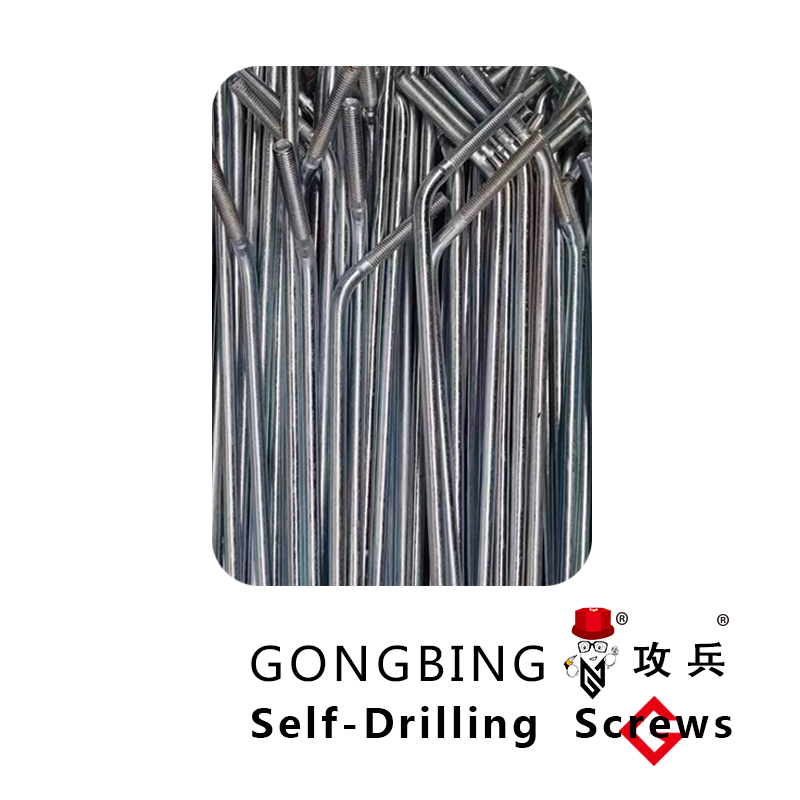Advancements in Chemical Anchor Fasteners for Enhanced Structural Integrity and Durability
Chemical Anchor Fasteners An Overview
In the world of construction and engineering, the importance of secure and reliable fastening methods cannot be overstated. Among the various fastening solutions available, chemical anchor fasteners have gained significant popularity due to their versatility, strength, and durability. This article explores the principles, applications, and advantages of chemical anchor fasteners.
Chemical anchors are fastening systems that utilize a combination of adhesive materials and mechanical anchors to create strong bonds between various substrates, such as concrete, masonry, or brick. These fasteners are typically comprised of a two-part epoxy or resin that cures when mixed with a hardener. When installed, the adhesive effectively fills any voids and irregularities in the base material, effectively enhancing the load-bearing capacity of the anchor.
One of the most compelling features of chemical anchors is their adaptability to different conditions. They can be used in various applications, including structural connections, railings, signage, and even in heavy machinery installations. This adaptability makes them suitable for new constructions as well as retrofitting existing structures. Furthermore, they are applicable in both horizontal and vertical installations, providing designers with a versatile solution for fastening needs.
The performance of chemical anchors is significantly influenced by the properties of the bonding agent used. High-quality adhesives can achieve impressive tensile and shear strength, often surpassing that of traditional mechanical anchors. This performance makes chemical anchors particularly effective in situations where traditional methods might struggle, such as in cracked or low-quality concrete, where mechanical anchors may not adequately hold.
chemical anchor fastener

Another significant advantage of chemical anchor fasteners is their resistance to environmental factors. They can withstand extreme temperatures, moisture, and exposure to chemicals without deteriorating, making them ideal for both indoor and outdoor applications. This durability extends the lifespan of the installation, leading to reduced maintenance costs over time.
Additionally, safety is a paramount concern in any construction project. Chemical anchors contribute to improved safety by providing a secure fastening solution that can accommodate dynamic loads, vibrations, and temperature fluctuations without loosening over time. This reliability can significantly reduce the risk of failures, which can lead to accidents and costly repairs.
Installation of chemical anchor fasteners requires careful preparation to ensure optimal performance. It involves drilling a hole, cleaning it thoroughly, and then injecting the adhesive before inserting the anchor. While the installation process can be more complex than that of traditional mechanical anchors, the strength and reliability of the bond formed make it a worthwhile investment.
In conclusion, chemical anchor fasteners represent a cutting-edge fastening solution that combines the best of both adhesive and mechanical anchoring technologies. Their versatility, strength, durability, and safety features make them ideal for various applications in modern construction. As engineers and contractors continue to seek innovative solutions for their fastening needs, chemical anchors are poised to play an increasingly important role in ensuring the safety and longevity of structures.
-
Weatherproof Plastic Expansion Anchors for OutdoorՆորություններJun.06,2025
-
Sustainability in the Supply Chain: Eco-Friendly TEK Screws ProductionՆորություններJun.06,2025
-
Load-Bearing Capacity of External Insulation FixingsՆորություններJun.06,2025
-
Double Head Bolts: Enhancing Efficiency in Industrial MachineryՆորություններJun.06,2025
-
Corrosion Resistance in Chipboard Screws: Coatings for Wholesale DurabilityՆորություններJun.06,2025
-
Butterfly Toggle Bolts : Enhancing Structural ResilienceՆորություններJun.06,2025
